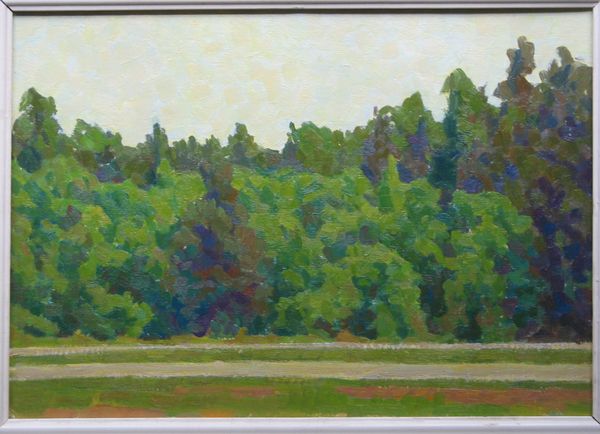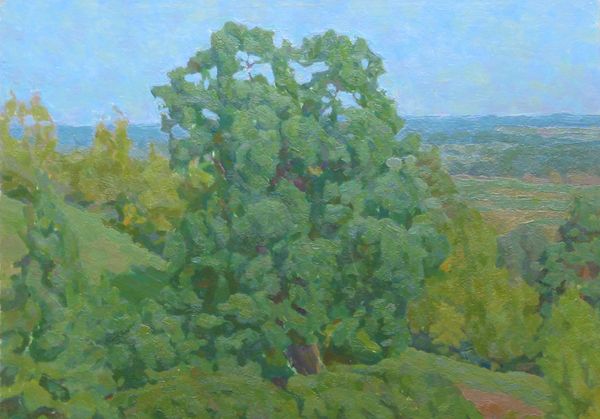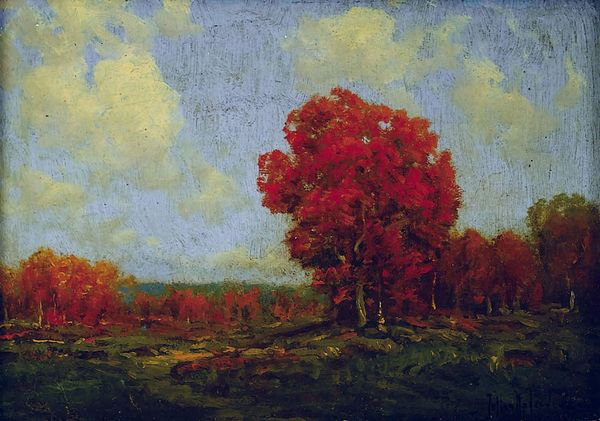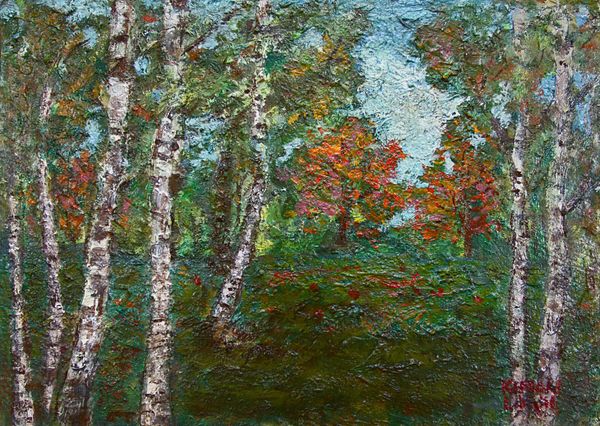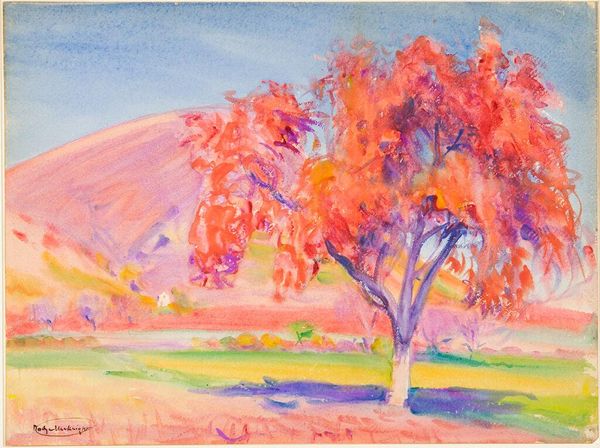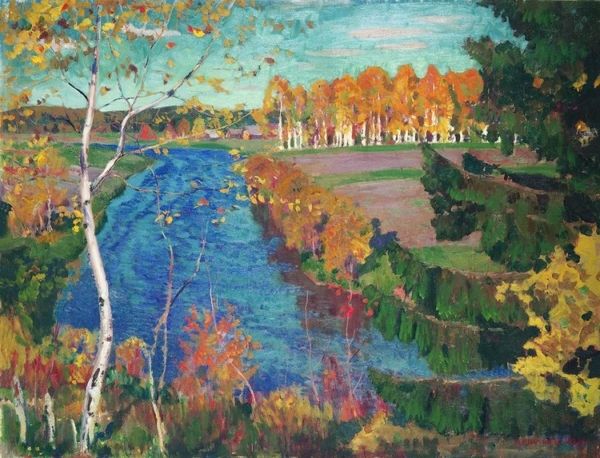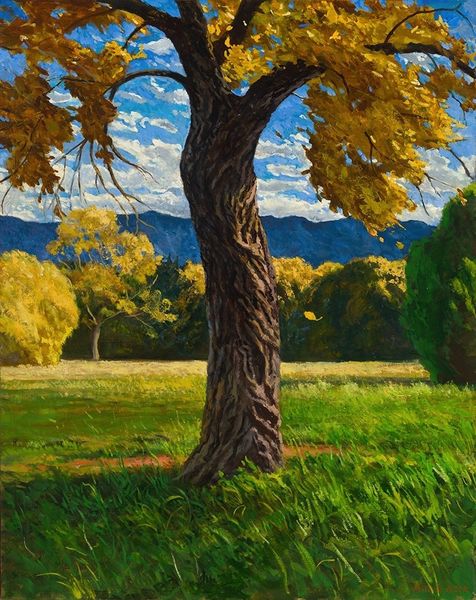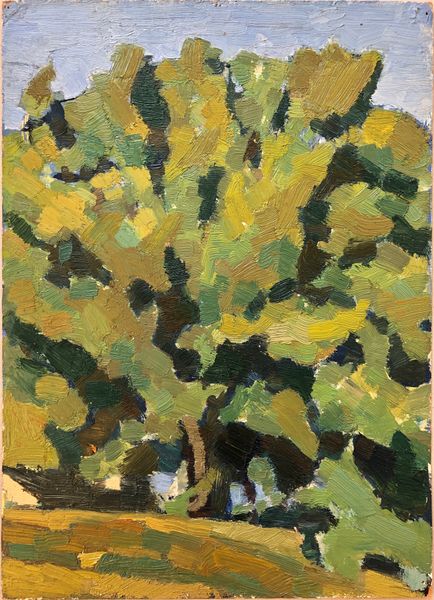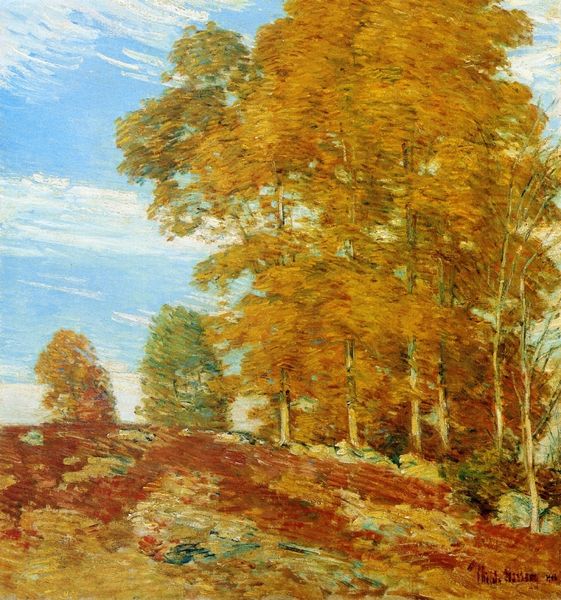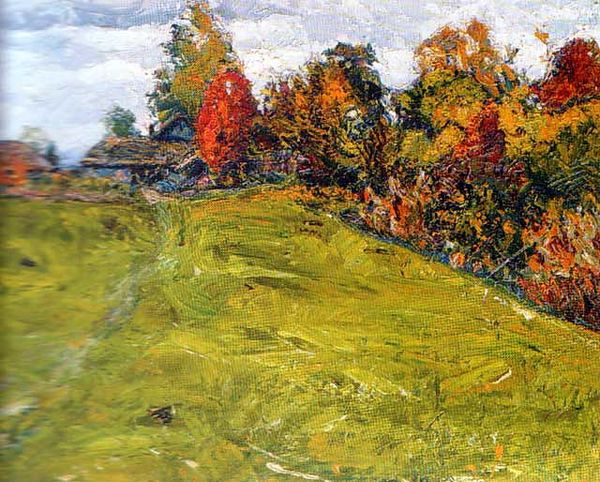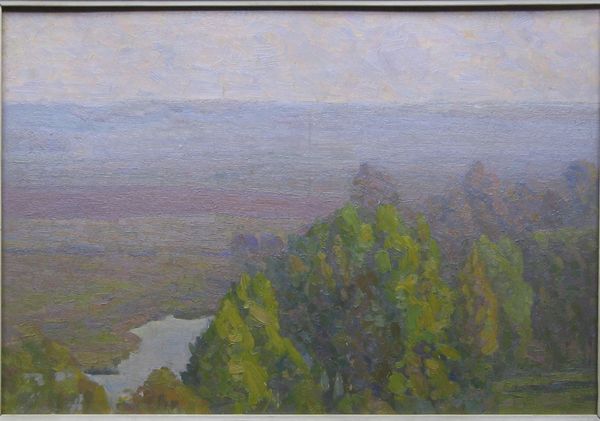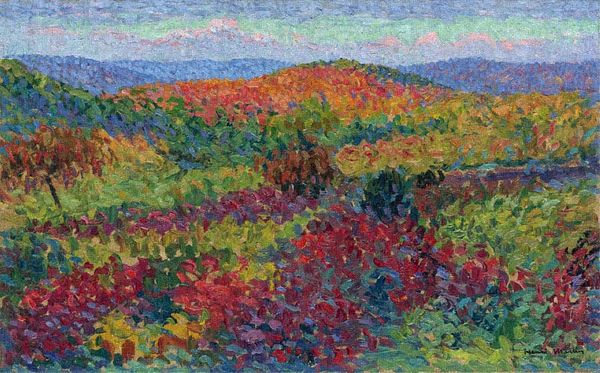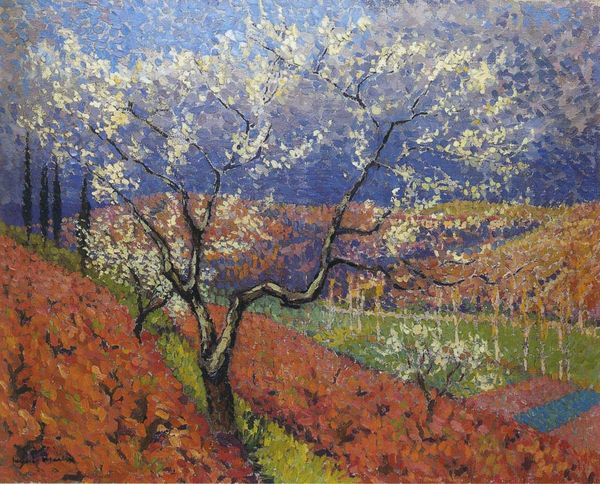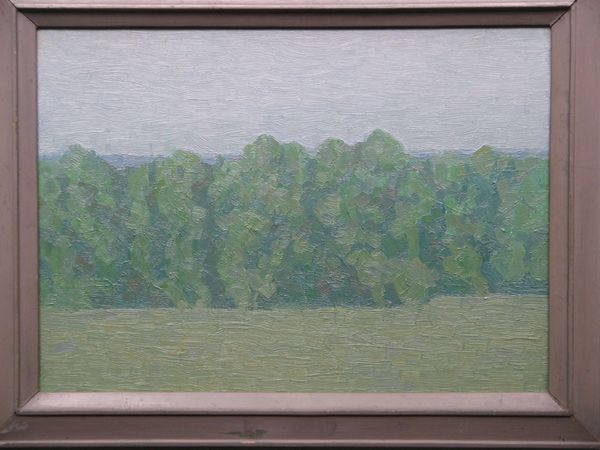
Copyright: Hryhorii Havrylenko,Fair Use
Curator: Here we have Hryhorii Havrylenko’s “Landscape,” an acrylic on canvas completed circa 1970. The work is held in a private collection. Editor: My first impression is a powerful sense of longing—that orange tree, standing almost alone, it's vibrant, yet vulnerable. It looks like a record of change, a memorial, a witness. Curator: Indeed. Havrylenko was part of a generation grappling with shifting artistic and political landscapes in Ukraine. The constraints imposed on artistic expression informed the development of his unique impressionistic style, despite the push for social realism. Editor: And this landscape is rendered in such an intimate scale—almost like a memory being held in the hand. There’s an echo here too, a visual reminder of movements in art from Van Gogh to Kandinsky, through its own post-impressionist vernacular. We cannot disentangle art from its predecessors, socially and politically. Curator: Right, though there is also an argument to be made about its naive aesthetic as well. It has this very strong tie to its time; think of Khrushchev’s Thaw, and how, through the seeming naivety and folksiness, artists subverted power structures. Editor: I read the bright, unmodulated patches of color as an assertion, actually. A push against enforced uniformity. The brushstrokes are direct, assertive… not apologetic. Havrylenko wasn't simply painting a tree; he was reclaiming space, asserting identity through a visual language that perhaps dodged direct confrontation but spoke volumes. Curator: It's easy to focus solely on the political aspects, but it's worth noting the materiality as well—the deliberate use of acrylics, possibly out of necessity at the time but equally perhaps, signaling something about the transient nature of memory itself. It has that en plein air sense. Editor: It reminds me of what Gramsci said, "Even silence is a choice". This landscape shouts with unspoken stories. Its mere existence becomes a powerful statement. Curator: Yes. Thank you for articulating what so many may feel, and perhaps now, appreciate even more. Editor: My pleasure. I hope others, too, find resonances of resistance and hope.
Comments
No comments
Be the first to comment and join the conversation on the ultimate creative platform.
